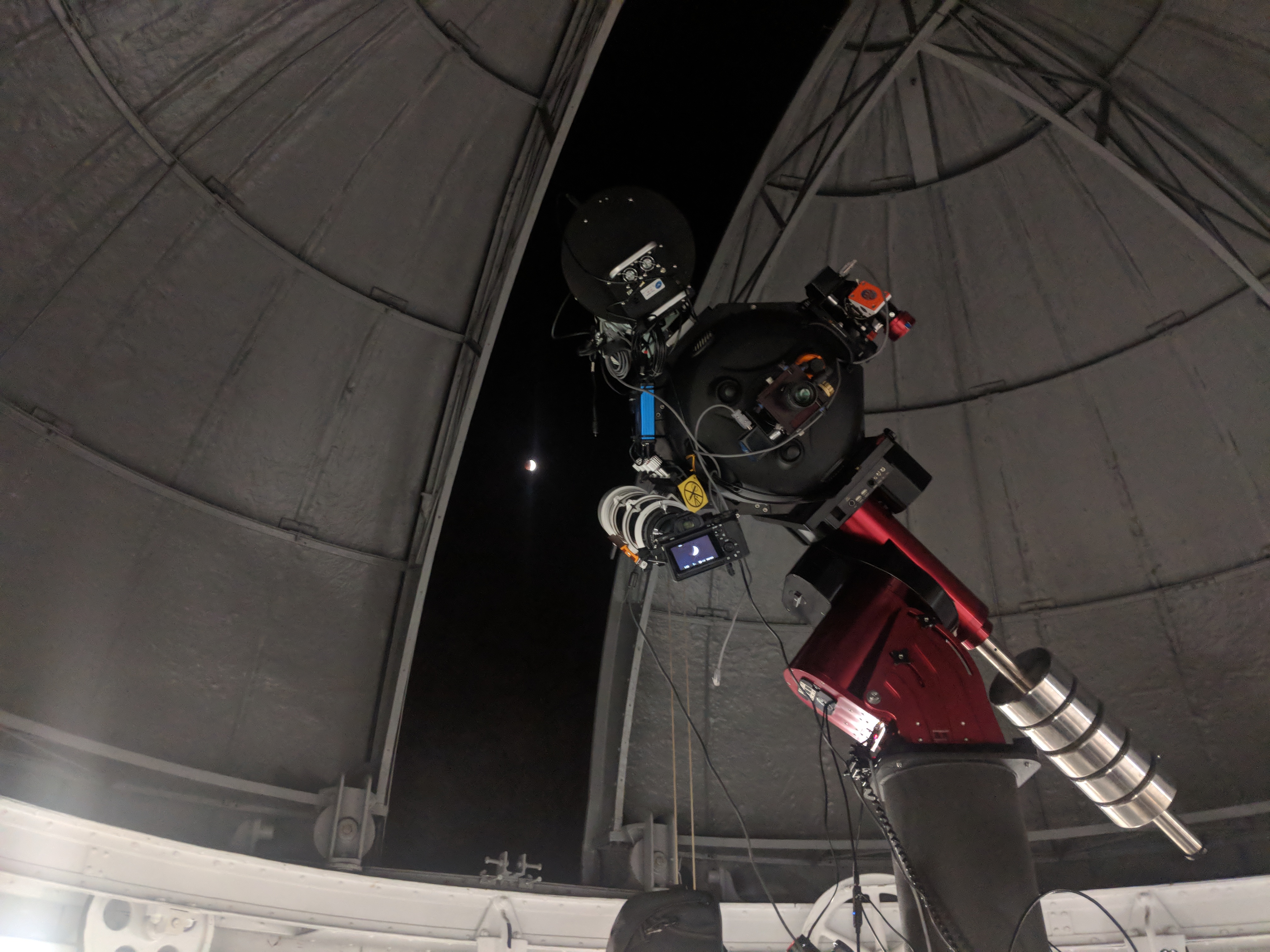
A top-ten UK visitor attraction, Royal Museums Greenwich is the place to discover sea and space exploration, pioneering architecture, art, and British history. We manage four iconic sites, including the 343 year old Royal Observatory – Britain's first state-funded scientific institution.
In 2018, we launched a pioneering new series - Space LIVES – with the aim of growing online communities and engaging new audiences in the topics of space and astronomy. This innovative series streamed major astronomical events to audiences worldwide through one of the most accessible platforms available – Facebook Live. Combining standout live-streams, expert commentary, user generated content, SEO strategy and press channels to drive awareness, the project delivered exceptional results.
The objectives were;
- To extend our organisation's reach and reputation
- To enrich the public's understanding of space and astronomy
- To provide enjoyable, engaging experiences in an accessible format
- To share the expertise of our astronomers, the rich history of our site and the depth of our collections
- To innovate with purpose whilst maximising opportunities to connect with our audiences
- To showcase the fact that the Royal Observatory returned to be a working observatory for the first time in 60 years
From this application, we will demonstrate how our creative and strategic approach exceeded all our objectives, while establishing a quality format that has ongoing benefits for our cultural institution and digital audiences worldwide.
As we had never tried anything to this scale before, our strategy followed a data driven approach that put our audiences at the heart of every decision. We selected four major astronomical events to live steam; Ramadan New Crescent Moon sighting, Lunar Eclipse 2018, Comet 46p's close approach and Lunar Eclipse 2019. We adopted a 'test and learn' mentality where each event became an opportunity to trial different formats across the series and review learnings to improve future activity. The whole series was delivered entirely in-house with minimal budget and no agency support.
Ahead of each event, we reached out to the widest possible audience by producing event-related search optimised web pages and promoted the live streams though the press. For each event, we streamed content live from the telescopes at the Royal Observatory to the Royal Museums Greenwich Facebook page. Our expert astronomers provided accessible commentary while celebrating our historical site and collections.
We also incorporated an innovative audience-focused approach with the inclusion of user generated content, live Q&As and inclusion of guest presenters.
Our strategy was:
- First our astronomers identified major upcoming astronomical events.
- We reviewed organic search volumes then prioritised events and tailored content accordingly.
- Event related optimised webpages were created, aligned to search terms and demand. This drove new engaged audiences to our website, positioning us as a global destination for astronomy.
- Space LIVES were also embedded on-page to build awareness, be accessible to non-Facebook audiences and to give a legacy to content post-event.
- We identified and approached partners to help build relationships and engage new communities.
- For example for the Ramadan New Crescent Moon sighting, we worked with the New Crescent Moon Society and Imad Ahmed to co-present with our astronomers. This helped us reach new audiences as well as celebrate the historical links between astronomy and Islam, while Imad brought a new perspective to our own collection.
- We also worked with external scientists; for example around the 2019 Lunar Eclipse we worked with a NASA scientist to link the eclipse with contemporary space missions and research while giving our content global appeal.
- We worked with our most engaged audiences, who submitted their own questions and beautiful astrophotography. This ensured we built our own communities alongside reaching new audiences.
- The events were promoted to existing audiences through our owned digital channels, and to new audiences through SEO, Facebook advertising, partner outreach and press coverage.
- We encouraged live conversation and interaction by opening up the streams to questions, which were either picked up by presenting astronomers or answered in the comments feed.
After each event we reviewed performance and discussed results. This allowed us to tailor future content to meet audience needs, while advocating for an ongoing LIVE programme. Over time we refined the process and upskilled our teams - ensuring our 2019 Lunar Eclipse event was the most successful to date, while developing a high quality format we will repeat throughout 2019.
We exceeded expectations; extending our reach, engaging audiences and establishing ourselves as a global authority.
We only spent £550 (on Facebook advertising) and yet achieved amazing results:
On Facebook we became one of the world's most successful museums.
- During the week of the Lunar Eclipse 2019 our page saw more video views than any other museum worldwide, despite having an average of 800k (91%) less Likes than the next five museums. Views were 4,839% higher than the international museum average.
- In the week of the Lunar Eclipse 2018 we had the world's highest Facebook Interaction Rate for a museum page (4.97%).
- Four Space LIVES had a total reach of 308,412, with 192,475 video views (representing £0.0028 cost per view). 82% of viewers were non-fans.
- Reach was 1,031% greater than an average post. Views were 1,633% higher.
- LIVES saw incredible interaction; 99,940 Facebook post engagements with 6,803 comments.
Related webpages drove more traffic than ever before
- Lunar Eclipse webpage ranked No. 1 for UK based 'Lunar Eclipse' Google searches.
- Webpages saw 325,735 page views, including the most views we'd ever seen in a single day
Space LIVES were covered in 42 pieces of press, including the Daily Mail, Independent, The Guardian, The Sun and ITV.
We built our communities for lasting benefit
- Around Space LIVES, Facebook page Likes saw a 1,173% uplift.
- Our specialist astrophotography Facebook group saw 307% growth, sharing 1,004 posts since the start of the series.





